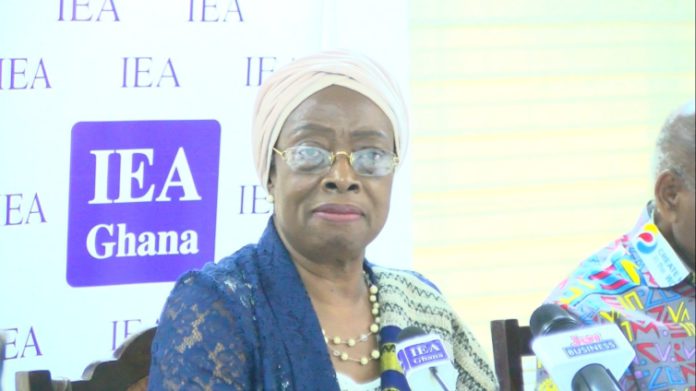In the wake of the controversy surrounding the ongoing trial involving a former Deputy Finance Minister accused of causing financial loss to the state, former Chief Justice, Sophia Akuffo has sought to clarify the misunderstanding around the concept of plea bargain.
A plea bargain, also known as “negotiating a plea,” is an agreement in criminal law proceedings whereby the prosecutor provides a concession to a defendant in exchange for a plea of guilt.
This may mean that the defendant will plead guilty to a less serious charge, or to one of the several charges, in return for the dismissal of other charges; or it may mean that the defendant will plead guilty to the original criminal charge in return for a more lenient sentence.
This has become a subject of controversy in the ambulance procurement trial case after the third accused, Richard Jakpa, accused the A-G of attempting to influence him to tilt his testimony against the Minority Leader, Dr Cassiel Ato Forson.
After making the allegation in open court, a supposed telephone conversation between him and the Attorney General, Godfred Dame has been leaked by the opposition National Democratic Congress (NDC), which has accused the AG of acting unethically in an attempt to jail Ato Forson, who is also the Minority Leader in Parliament at all costs.
Speaking on the plea bargain concept, the former Chief Justice in an interview with JoyNews‘ Samuel Mbura, said plea bargain is permissible in every criminal case unless there is a specific law restricting its application.
Madam Akuffo said the practice, not at all a novelty, is commonly applied in many countries and even in murder cases.
“The prosecution can seek to plea bargain in every criminal case unless there is a law setting boundaries as to what cannot be plea bargained,” she said.
Asked about the propriety of its application in the current controversial ambulance case, Madam Akuffo said while she was not particularly seized with the facts of the ambulance case, she sees nothing wrong if the prosecution thought it more appropriate to go for a plea bargain.
However, she emphasised that “sometimes, you plea bargain a co-defendant and make that co-defendant your prosecution witness in exchange for which they plead guilty to a lesser charge.”
Meanwhile, the Attorney-General Godfred Yeboah Dame has released details of plea bargain correspondence between his office and third accused in the ambulance case, Richard Jakpa.
This action comes after Jakpa claimed in open court that Godfred Dame had attempted on multiple times to recruit him to assist with testimony to condemn the first accused, Cassiel Ato Forson.
Dr Ato Forson, a former Deputy Finance Minister and current Minority Leader, faces charges of willfully causing financial loss to the state for his alleged role in procuring faulty ambulances for Ghana.
Dismissing Jakpa’s claims, the Attorney General insisted that Jakpa had actually sent several letters requesting a plea bargain.
He added that the proposal has not yet been accepted.
“It is rather the third accused who, by various letters dated 27th April 2023, 16th May 2023, 30th May 2023 and 12th June 2023, has proposed to the Republic through the Attorney-General to engage in plea bargaining or plea negotiations. This plea bargaining proposal has, to date, not been accepted by the Attorney-General.
“Even though the law on plea bargaining passed by Parliament permits a prosecutor to negotiate with an accused person after a plea proposal has been made, the Attorney-General has not engaged the third accused person to give false testimony in the matter,” Mr Dame stated.
ALSO READ:

